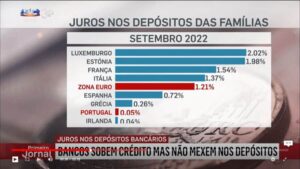Buffeted by Brexit bewildermant
GBP: Deal or No Deal 1
A roller-coaster week for sterling was driven almost entirely by Brexit hopes and fears. Meaningful UK economic data were almost non-existent. It was all about Deal or No Deal. Investors were no wiser at the end of the week than they had been at the beginning as to which of the two might materialise. On average, the pound came out of it a little bit ahead, up by a gnat’s whisker against the other majors. It lost half a US cent and added a sixth of a euro cent.
The Prime Minister’s suspension of Parliament has further clouded what were already muddy waters. Scotland’s Court of Session will rule today on whether the prorogation is legitimate. Opposition leaders have said they will attempt to legislate against no deal when Parliament reconvenes, but there are doubts that they can put party political differences aside to do so. The coming week in Westminster will be interesting, not least for the pound.
EUR: Gloomy German business
As the political picture in Britain deteriorated, the one in Europe brightened. The breakdown in Italy of the coalition between Luigi Di Maio’s Five Star Movement and Matteo Salvini’s Lega had threatened to provoke a general election but that problem has been avoided. A new coalition between Five Star and the centre-left Democratic Party should mean a more coherent approach to fiscal policy and less friction with the EU. Investors approve.
They are less enthusiastic about the state of the Euroland economy and quite boot-faced about the situation in Germany, a country once known as Europe’s industrial locomotive and latterly as its anchor. An example of the latter was the IFO survey of German business confidence. Companies are increasingly pessimistic and the sentiment index fell for an 11th time in 12 months. The euro has not suffered unduly: it is a quarter of a US cent lower on the week.
USD: Deal or No Deal 2
As in Britain, financial markets in America – and therefore in the rest of the world – were gripped by a Deal or No Deal question mark. This one relates to Trump’s relationship with China, which appears to change direction almost every day with each presidential tweet. At the time of writing, the official White House line is that talks are set to take place “at a different level” and the mood is optimistic, with safe-havens on the back foot and “risky” currencies on the rise. However, this could all change in a moment with a twitch of the presidential thumbs. It looks like Twitter is currently the biggest arbiter of risk-appetite among investors.
Although the US dollar is traditionally ranked among the safe-haven currencies, its reactions in the trade war scenario are less predictable, not least because of its effect on the domestic economy. In general, investors seeking safety are more inclined to go to the Japanese yen or Swiss franc than to choose the dollar. It is half a cent stronger on the week against sterling, and up by quarter of a cent against the euro, but the yen and the Canadian dollar have both done better.
CAD: Reacting to trade war
The Loonie put in the week’s second best performance behind the Japanese yen. It added a tenth of a US cent and went up by more than four fifths of a cent against sterling. Some of that was the result of higher oil prices: WTI crude rose a net 2% despite a two-dollar dip last Friday. Some of it related to the very recent softening of the trade-war standoff between Washington and Beijing: Trump’s talk of renewed negotiations coincided with China holding back from retaliating to the latest US tariffs.
Canadian economic statistics have been thin on the ground. The most important – and just about the only – ecostats in the last week were Friday’s retail sales numbers. They were much stronger than forecast, with sales rising 0.9% in June. The longer-term picture was less impressive though: sales in June were unchanged from the same month last year.
AUD: Reacting to China’s economy
In common with other financial instruments, the Australian dollar is hostage to the progress or otherwise of the US President’s trade war. At a basic level, new tariff sanctions on China are negative for the economy of Chinese, Australia’s biggest export customer, and any easing of tensions, such as renewed trade talks, is positive. Nowadays that cause-and-effect has been telescoped into the prospect of such changes: When Trump hits Twitter, investors feel obliged to react to his words as if they were gospel, even though they know full well that the message could be reversed within hours. The Aussie is caught up in that spiral and has lost a third of a US cent on the week. It is a third of a cent lower against sterling.
Australian economic data did not give investors much to work with. Construction work done fell 3.8% in the second quarter and is down by 11% on the year. New home sales mirrored this situation. They fell 7.2% in July and were down by 12.8% year-on-year. To complete the picture, building permits were 28.5% fewer in July than in the same month last year.
NZD: Nothing good to say
The NZ dollar was the joint weakest performer of the week, coincidentally sharing the wooden spoon with the Norwegian krone. It lost almost one US cent and fell two cents against sterling. Its downward progress against the dollar was relatively smooth.
There was no single point of weakness for the Kiwi, more a sense that the economy is not going swimmingly. Two sets of data and one business survey tended to confirm that view. July’s trade deficit was wider than expected at $5.46 billion and building permits fell by a monthly 1.3%. More important than either of those was the forward-looking ANZ New Zealand Business Outlook. It began with the heading “Nothing good to say about it” and went on to talk of how “business confidence fell another 8 points to -52%”, “employment, investment and export intentions all fell to dismal levels “, and “inflation indicators were weaker despite higher reported costs”.
For corporate partnerships enquiries, please call: +44 (0) 203 823 0526 or email: corporatepartnerships@moneycorp.com
For personal partnerships enquiries, please call: +44 (0) 207 828 7000 or email: partners@moneycorp.com
To find out more about suitable solutions, please call us on: +44 (0) 207 823 7400, email: partners@moneycorp.comor, visit our website here
moneycorp is a trading name of TTT Moneycorp Limited which is authorised by the Financial Conduct Authority under the Payment Service Regulations 2017 (reference number 308919) for the provision of payment services.
For competitive exchange rates, low transfer fees, expert guidance and the special offer of your FIRST TRANSFER FREE call moneycorp on +44 (0) 207 823 7400 or visit www.moneycorp.com/portugal-resident


























